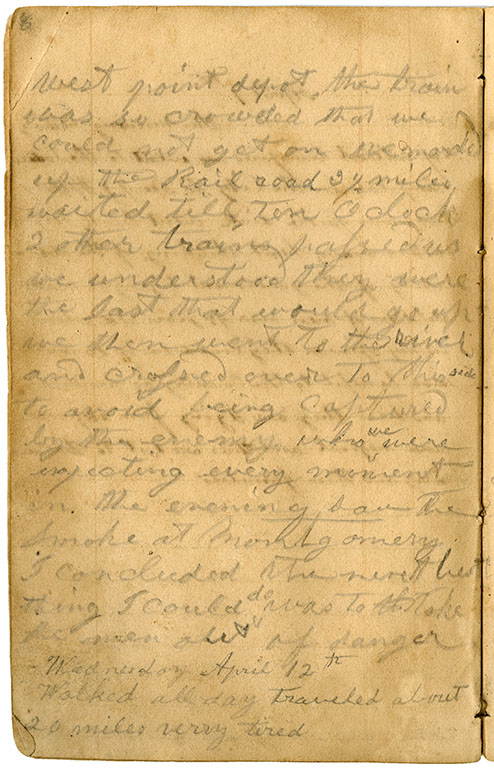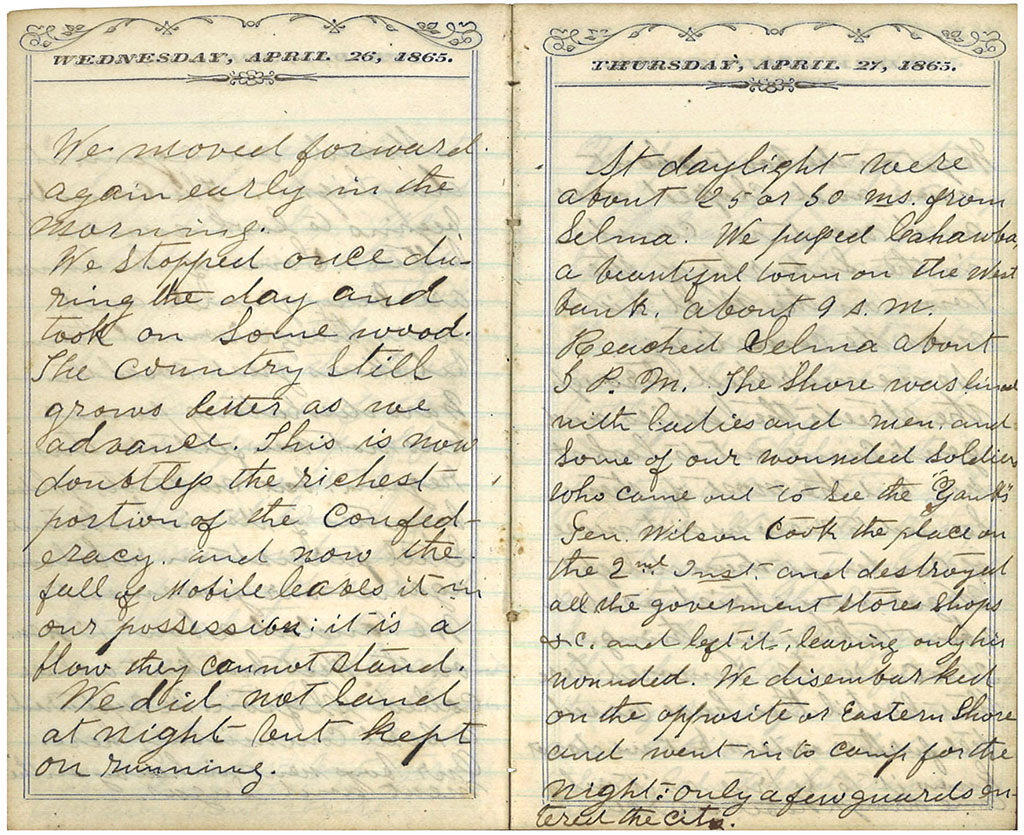In 1861, eleven states withdrew from the U.S. to form a new national entity. The Alabama Ordinance of Secession calls this group a “Southern Slaveholding Confederacy,” and its central goal was to preserve a way of life built on a slave economy.
The end of the war in 1865 was also the end of this experimental nation. The Southern states were slowly returned to the Union, contingent upon making sweeping changes to their political system and society.
War’s End in Alabama
Montgomery & Defeat
…the train was so crowded that we could not get on we marched up the Rail road 3 1⁄2 miles waited till ten oclock 2 other trains paʃsed us we understood that they were the last that would go up we then went to the river and croʃsed over to this side to avoid being captured by the enemy who we were expecting every moment in the evening saw smoke at Montgomery I concluded the next best thing I could do was to take the men out of danger
From an Apr. 11, 1865, diary entry by Anson C. Roycroft, a Confederate Army veteran and now the commander of a small local militia unit. He and his men spent the last days of the war in and around Montgomery.
The previous day, they had been told to get into line of battle, but now they were ordered to leave the city.
A.C. Roycroft papers, MSS.1213 (Digitized item) (Info about the collection)
Selma & Occupation
… The country still grows better as we advance. This is now doubtless the richest portion of the Confederacy, and now the fall of Mobile leaves it in our possession: it is a blow they cannot stand. …
… Reached Selma about 5 P.M. The shore was lined with ladies and men, and some of our wounded soldiers who came out to see the ‘Yanks’ Gen. Wilson took the place on the 2nd inst. and destroyed all the government store shops &c. and left it, leaving only his wounded. …
From April 26 & 27, 1865, diary entries by Union soldier Joseph Huhn of Ohio. His unit was traveling up the Alabama River from Mobile into the Black Belt, a prosperous region that was left virtually untouched until the very end of the war.
Joseph S. Huhn diary, MSS.3217 (Info about the collection)

